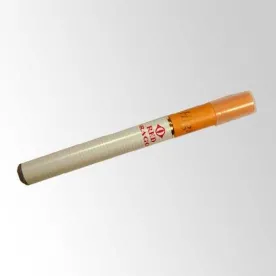The recent outbreak of deaths and injuries associated with vaping is alarming—especially since there is no definitive cause determined as of now. As the investigation continues, everyone with a role in the manufacture, distribution or sale of vaping related products is left wondering what action, if any, to take now. Retailers, in particular, stand in a position of having limited information. Faced with possible consumer harm, threatened regulatory changes, and likely lawsuits, some retailers are taking action. On Friday, Walmart announced it had decided to discontinue selling e-cigarettes citing regulatory flux as the reason. In addition to concerns over harm to consumers, there are other business reasons to consider when deciding whether or not to continue selling these products.
When consumers file suits alleging injuries from a product, they often sue not only the product manufacturer, but also ingredient manufacturers and retailers. Depending upon the state, retailers are sometimes able to obtain an early dismissal from these suits under what is referred to as an “innocent seller” defense. The theory is that the retailer, without knowledge of the potential harm, is arguably less culpable and should be dismissed as long as the consumer can collect from the upstream manufacturer. One exception to the innocent seller defense is in cases when there are independent claims of wrongdoing against the retailer. For example, a retailer may not be dismissed if there is an independent negligence claim against the retailer. A viable negligence claim may be created when a retailer knows or has reason to know the product is hazardous and goes ahead and sells it anyway. That knowledge may prevent a retailer from claiming to be an “innocent seller”.
Recent media coverage of the potential harms associated with e-cigarettes may be used to establish “knowledge” for retailers to a sufficient degree that a consumer could allege a viable independent claim of negligence against the retailer. The innocent seller defense is not a protection against independent claims of wrongdoing (negligence). The argument is simply that a retailer who sells e-cigarettes with knowledge of the potential harm is no longer an “innocent seller”.
Sophisticated retailers require and document other protections in the sales process by obtaining indemnification agreements with manufacturers whose products they sell. In exchange for selling the products, a manufacturer agrees to defend and indemnify the retailer for any claims brought relating to the quality of the product or harm caused by the product. This is done through written agreements. The specific language used may or may not cover claims alleging that the retailer was independently liable. Thus, retailers may also lose their contractual indemnification protections if they are sued on an independent claim for negligence. Laws determining the validity of these terms can vary state by state.
While it may be tempting to adopt a “wait and see” attitude regarding the current uncertainty surrounding vaping and potential liability related thereto, what retailers say and do now may be determinative in subsequent consumer claims. Whether or not to continue to sell e-cigarettes is a complicated business decision. There is no one right answer for every retailer. However, every retailer needs an understanding of all of the potential risks when considering their decision as well as what might be done to reduce or eliminate those risks.




 />i
/>i
